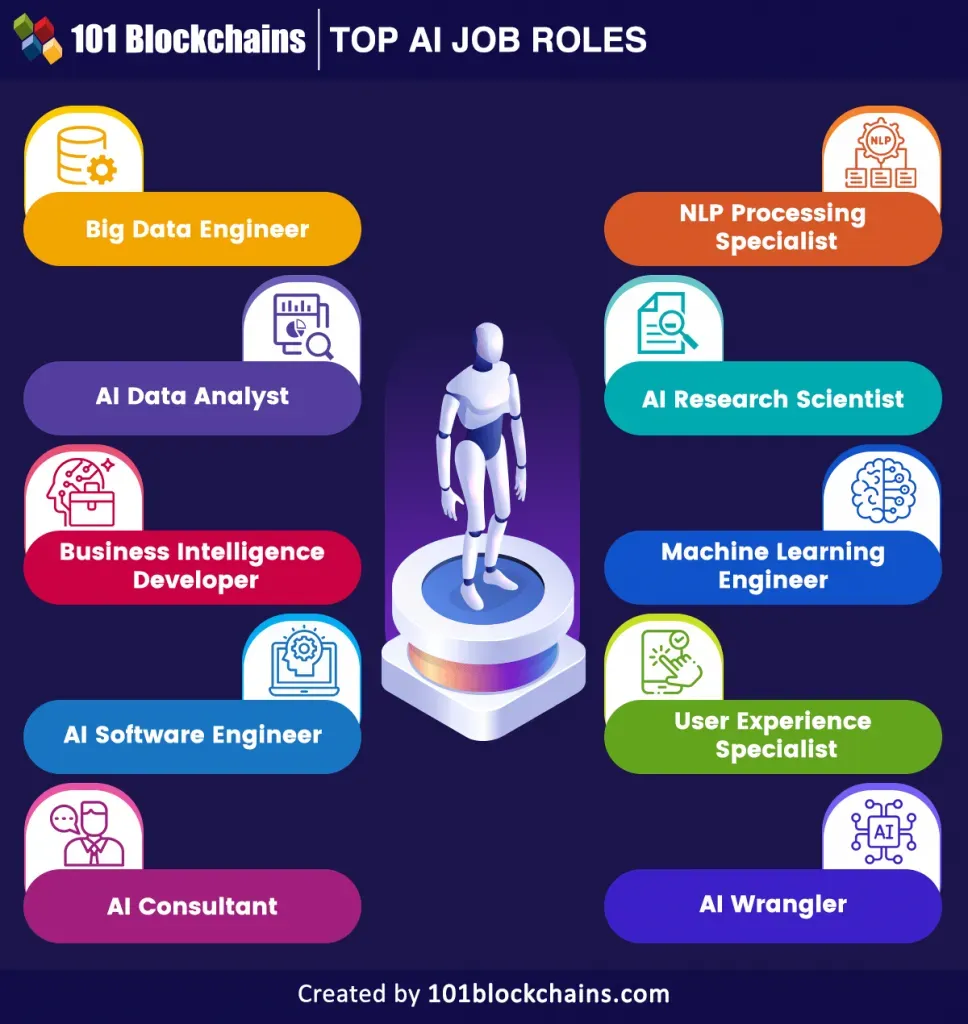AI job opportunities are rapidly emerging as a driving force in the future of work, challenging traditional notions about employment and career paths. As artificial intelligence continues to reshape the landscape, it’s clear that while some high-paying jobs without a degree may be at risk, an even broader range of roles are being created. The impact of AI on jobs goes beyond mere automation; it includes fostering new skills and enhancing productivity across various fields. To thrive in the evolving job market, AI literacy becomes essential, enabling individuals to harness the technology for personal and professional growth. This transformation holds the promise of revitalizing the economy by equipping a diverse workforce with the tools and knowledge needed to succeed in this dynamic environment.
Within the arena of artificial intelligence, emerging roles and career trajectories are shaping what many are calling the new age of employment. Instead of viewing AI solely as a threat to existing roles, it’s time to recognize its potential to forge sustainable and rewarding job pathways. The future landscape of work will involve diverse opportunities that emphasize digital skills, enabling workers to embrace advanced technologies. Consequently, this presents a pivotal moment for fostering AI literacy among all demographics, ensuring equitable access to high-paying careers that may not require formal degrees. By advocating for this inclusive approach, we can effectively address the challenges posed by automation while cultivating a more resilient and adaptable workforce.
Understanding AI Job Opportunities in the New Economy
As artificial intelligence continues to evolve, it’s essential to recognize the new job opportunities emerging within this landscape. Many traditional roles, particularly those with six-figure salaries, are being transformed or eliminated by advanced algorithms and AI systems. However, this transformation also opens up a world of possibilities for individuals willing to embrace change and adapt to new technologies. AI job opportunities are not just about programming or technical roles; they’re expanding into various fields, including logistics, healthcare, finance, and marketing, where human oversight and creative input remain invaluable.
In this new economy, roles such as AI-assisted logistics operators or digital financial coaches are becoming increasingly vital. These positions require individuals to possess strong digital literacy and the ability to work alongside AI tools effectively. The focus is shifting from having formal educational qualifications to having the right skills and a willingness to learn as industries adapt. As companies seek staff who can navigate the integration of AI in everyday operations, there is a rising demand for training programs that emphasize practical skills over degrees.
Frequently Asked Questions
What are the potential AI job opportunities for the future of work?
The future of work is being reshaped by AI job opportunities that include roles such as AI-assisted logistics operators, digital financial coaches, and AI-empowered health aides. These positions require skills over formal degrees, emphasizing AI literacy and digital fluency.
How is AI impacting job opportunities in the job market?
AI is significantly impacting job opportunities by automating various white-collar jobs, such as legal research and marketing. However, this also creates a demand for new skills, leading to the emergence of high-paying jobs in tech, health, and finance that leverage AI tools.
What skills will be important for future AI job opportunities?
Future AI job opportunities will prioritize skills such as digital literacy, critical thinking, adaptability, and proficiency in AI tools. The ability to work synergistically with AI technologies will be essential for securing roles that offer competitive salaries.
What are high-paying jobs without a degree in the age of AI?
In the age of AI, high-paying jobs without a traditional four-year degree could include positions like data analysts, AI technical support, and other tech-focused roles that emphasize skill development and AI literacy rather than formal education.
How can communities create AI job opportunities and increase access?
Communities can create AI job opportunities by forming public-private partnerships to fund AI literacy programs and training initiatives. Ensuring access to AI education can empower diverse groups and facilitate their entry into the AI-driven job market.
What role does AI literacy play in job opportunities?
AI literacy is critical in bridging the gap for job opportunities as it equips individuals with the knowledge to engage with AI technologies. This knowledge can lead to better job prospects in emerging fields that prioritize skill proficiency.
Why is it important to empower underserved communities in AI job opportunities?
Empowering underserved communities in AI job opportunities is essential for driving economic growth and inclusion. By providing access to training and resources, we can ensure that a diverse workforce participates in the AI economy, potentially boosting GDP by 2–3%.
What strategies can help boost AI job opportunities for young people?
Strategies to boost AI job opportunities for young people include targeted training programs, mentorship models, and AI education integrated into school curriculums. Initiatives like the AI Literacy Pipeline Project exemplify effective ways to engage youth in AI careers.
How can the American Dream be revitalized through AI job opportunities?
The American Dream can be revitalized through AI job opportunities by focusing on creating dignified, well-paying jobs that do not necessarily require a college degree. By fostering access and inclusion in AI training, we can rebuild economic stability and growth.
What is the significance of AI in shaping the future job market?
AI’s significance in shaping the future job market lies in its ability to both automate existing roles and create new job opportunities. This dual effect necessitates a workforce that is skilled in AI technologies, directing the future toward inclusive economic benefits.
| Key Points | Details |
|---|---|
| AI Impact on Jobs | AI is automating high-paying jobs (e.g., legal, medical, coding), posing threats to traditional job security. |
| New Job Creation | AI can create millions of new jobs that emphasize skills over degrees. |
| Economic Growth | 70% of U.S. GDP from consumer spending requires inclusion of displaced workers. |
| AI Literacy Programs | Initiatives like the AI Literacy Pipeline aim to equip young Americans with AI skills. |
| Inclusivity in AI Workforce | Empowering underserved communities can boost GDP by 2-3% annually. |
| Focus on Education and Training | Partnerships and training for digital skills are crucial for workforce preparedness. |
| Economic Revival Through AI | Strategic use of AI can restore dignity and expand ownership in the economy. |
Summary
AI job opportunities are on the rise as artificial intelligence technology continues to evolve and reshape the workforce landscape. While AI is transforming high-paying jobs and causing job displacement, it also presents a unique chance to create millions of new positions. With a focus on reskilling, inclusivity, and community-based training programs, many of these new roles will not necessitate traditional four-year degrees, emphasizing skills and digital fluency instead. To harness the full potential of AI job opportunities, we must invest in education and accessible training, particularly for underrepresented communities, thereby fostering a dynamic economy that prioritizes growth and equity.



